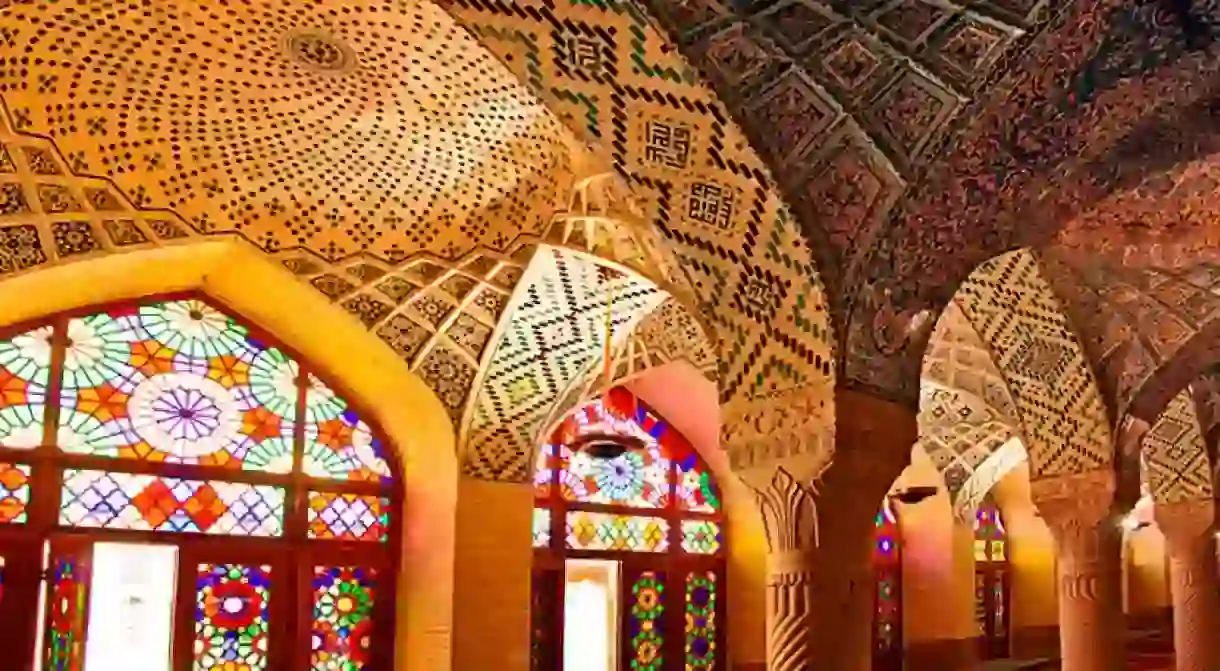11 Things to Know Before Travelling to Iran

Travelling to Iran for the first time can be a combination of excitement (because you’ve seen amazing things on social media) and nerves (because you just can’t shake those old headlines or news videos). But those who have visited can attest to the fact that Iran is not scary and, in fact, usually ranks as one of the safest places they’ve visited. But since the tourism industry is still a budding one, here are some things to consider before packing your bags.
Be flexible
As a whole, Iranians are relaxed when it comes to the concept of time, so a certain level of patience is required. Don’t expect things to happen on time or to run smoothly. It’s even possible (though thankfully, not too common) to trek to an attraction only to find that it’s closed that day. While it’s good to have a general itinerary, leave some room for flexibility in case things don’t work out as planned.
Dress modestly
Though the dress code is more lenient for tourists, you should still dress modestly, even during those scorching summer days. For women, that means a long skirt or pants, a headscarf and a long sleeve shirt or tunic that’s also long enough to at least cover your bum. Colours or prints are no problem. For men, short sleeve shirts are okay, but pants must be long (no shorts in public).

Get your visa beforehand
While citizens of some countries, like the US or the UK, need to obtain visas in advance, others are part of the ‘visa on arrival’ program and can get one at the airport in major cities. However, the process is not exactly a quick one and after travelling, you’ll surely be more interested in starting your Iran adventure rather than waiting around at the airport. Also, there’s a lot of misinformation on the internet, so we suggest applying for your visa in advance to avoid any mishaps.

Bring cash
Since credit cards are not accepted, you’ll need to bring along plenty of cash. Carrying around wads of bills may be strange, so the option to exchange money and receive Iranian rials in the form of a debit card at Melli Bank at Imam Khomeini Airport is available. Otherwise, you can easily exchange money as you need it throughout cities.
Understand the price
The rial-toman issue is a common cause of confusion and frustration among tourists. The official currency is the rial, but Iranians only use toman in speaking. To calculate, take one zero off the rial amount (i.e., 100,000 rial = 10,000 toman). But it can get more complicated than that. In some cafes, restaurants and stores, the price is in rial while in others, it’s in toman. The salesman is likely to tell you the price in toman and in that case, they often say, for example, 20 toman to mean 20,000 toman (200,000 rial). When in doubt, ask for the price in rial (or dollars or euros).

Travelling during Ramadan
It’s a good idea to consult the calendar before booking your trip because visiting Iran during the month of Ramadan may pose some inconveniences. The overall vibe throughout the country is rather subdued at this time, so many attractions have differing or limited opening hours.
But perhaps the biggest inconvenience is that there is no eating or drinking in public during the day. Because restaurants and cafes open just before iftar in the afternoon (and stay open later than normal in the evening), your only option for a meal during the day is at a hotel. However, Islam does not require Muslims to fast while they travel, so you are free to eat if you are travelling between cities (i.e., eating in the airport or on the train is fine). Otherwise, if you must eat or drink during restricted hours, be discreet.
Ask permission before photographing locals
Between its magnificent sites and beautiful nature, Iran can no doubt provide a great deal of fodder for your camera. But be careful when photographing people. Some may not want to be photographed because they don’t know where the picture may end up, so just ask their permission first. They’ll appreciate it and may even want to take a picture with you as well!

Understand târof
Iranian culture dictates that you must refuse to receive payment the first time. This can be puzzling for tourists since most of the world is accustomed to paying for goods or services. If the taxi driver, waiter or shopkeeper says ghâbel nadâre (it’s on us), make no mistake – it’s just part of the culture and you still have to pay. If you make new friends along the way, you may lose the târof battle over the bill the first time, but you can always return the favour the next time, which leads us to our next tip.
Bring some souvenirs from home
Iranians are an extremely curious and friendly bunch, especially towards foreigners. So chances are that you’ll be invited to someone’s home at some point or treated out somewhere. Bring souvenirs from your home country to give out as a thank you.

Learn a few words
Learning a few phrases can get you far. Iranians will not only appreciate it, but they’ll think it’s cute and try to teach you more or maybe correct your pronunciation, which will open the doors for further communication and build relationships and understanding. Check out Culture Trip’s guide to essential Persian phrases to master the basics.
Buying a local SIM card and internet access
Upon arrival at Imam Khomeini International Airport, you can purchase a local SIM card with internet service on it. Instagram and messaging apps like WhatsApp and Telegram are easily accessible, but social media sites like Twitter or Facebook are blocked, so if you’re a frequent user, you’ll need to download a VPN to circumvent these filters.














